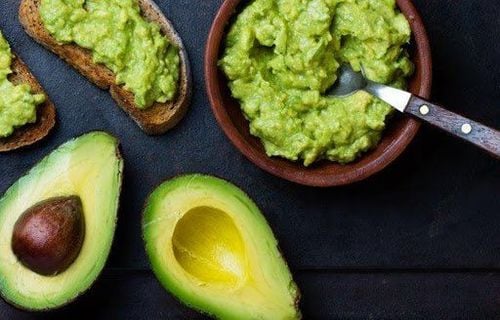Losing 10 kg in one month is a common goal for people struggling with being overweight or obese. However, achieving this goal in such a short period is challenging without a well-structured plan. By combining several approaches, including diet, exercise, and lifestyle adjustments, you can achieve significant weight loss safely and sustainably. Here are 10 strategies that can help you lose weight effectively without compromising your health.
1.Track Your Calorie Intake
Calories measure the energy your body consumes and burns daily. To lose weight, the calories you consume must be less than or equal to the calories your body uses. Therefore, if the body burns more energy through physical activity, weight loss can be achieved effectively. Even though tracking calorie intake can help you monitor your diet and make healthier choices, most of us are wondering how to calculate calories precisely. You can use smaller plates to control portion sizes and calculate the calories in each meal effectively while not compromising your health.
Studies show that people who track their calorie intake lose up to 3 kg more than those who don’t. Thus, tracking calories intake helps you in choosing and balancing nutrients while reducing calorie intake - ultimately ensures safe weight loss.

2. Drink Water Properly and Sufficiently
Water is an essential component, making up about 70% of our body. But can drinking water be a simple and effective long-term method for weight loss? Research suggests that water contains 0 calories and can create a feeling of fullness, which helps reduce appetite when consumed adequately. For instance, drinking a glass of water before meals can reduce food portions, giving individuals who adopt this method an advantage in losing weight faster than those who don't.
Water plays a crucial role in circulation and all bodily functions. Drinking water promotes metabolism, burns calories, and helps reduce excess calorie accumulation since it contains no energy. According to a study, drinking 500 ml of water increases the body’s metabolic rate by about 30% within 30-40 minutes, compared to those who do not drink water regularly. Additionally, drinking 500 ml of water before meals can lower calorie intake by up to 13%.
This is why doctors recommend drinking 1.5 to 2 liters of water daily. Besides aiding in weight loss, water supports blood circulation, softens food for better digestion, and prevents constipation.
3. Modifying Protein Intake
How to Lose 10kg Quickly? The key lies in increasing your daily protein intake. Protein promotes muscle growth and boosts metabolism, aiding in the conversion of fat into energy. Consuming protein-rich foods can reduce hunger cravings, making it easier to burn off the calories you consume.
For adults, increasing protein intake by 15% compared to their usual diet helps them feel full longer and maintain the energy needed for daily tasks. This prevents belly fat and weight gain from negatively impacting their health and lifestyle.
Another study on boosting protein in breakfast showed a reduction in ghrelin levels, a hormone responsible for hunger cravings. Lower ghrelin levels lead to reduced calorie intake and inhibit belly fat accumulation, which contributes to body weight gain.
To increase protein intake and achieve a 10kg weight loss within a month, you can include foods like meat, seafood, legumes, eggs, and various nuts in your diet. However, you should consult a nutritionist to develop a suitable plan, as excessive protein intake can pose risks to your health.

4. Reduce Carbohydrates
Carbs, or carbohydrates, are a major factor contributing to weight gain and excess fat. This is why many weight loss diets focus on reducing carb intake to the minimum to help control body weight. Moreover, carbs can cause a spike in blood sugar levels, which accelerates the absorption and digestion process, making the body quickly crave for food and feel hungry. Overconsumption of carbohydrates creates an opportunity for fat to accumulate, leading to overweight, obesity, and potential health issues such as cardiovascular disease, high blood lipid levels, and elevated liver enzymes.
5. Incorporate Fat-Burning Exercises
Exercise is a safe and effective way to lose weight. However, the effectiveness of exercises can only be maximized when the individual knows how to adjust and choose exercises that suit themselves. Endurance exercises are always a good solution for weight loss because they require persistence and a commitment to not give up when faced with difficulties.
Several studies measuring energy consumption during endurance exercises have shown that metabolism speeds up and more energy is burned, even after completing the workout and while resting. On average, after 10 weeks of endurance training, the body's metabolic rate increased by 7%, stabilizing blood sugar and reducing the risk of diabetes. It also burns approximately 1.8 kg of fat into energy in adults.
A study involving nearly 100 women who engaged in endurance training showed significant improvements in metabolism and a notable reduction in body fat. Their bodies maintained a leaner shape with less fat accumulation.
If you're busy and cannot commit to long sessions at the gym, you can try shorter exercises that will still help burn calories. Simple exercises like squats, planks, and lunges are optimal choices because they are easy to perform, require minimal time, and are just as effective in burning fat as gym workouts.

6. Increase Fiber Intake in Every Meal
Fiber not only supports digestion and acts as a natural laxative, but it also helps you feel fuller for longer, reducing the urge to snack. A study showed that men consuming 33 grams of fiber daily experienced reduced hunger and gradually decreased portion sizes. According to nutritional reports, increasing daily fiber intake by 14 grams can reduce calorie consumption by 10%, compared to a low-fiber diet. Over four months, this adjustment alone could lead to nearly 2 kg of weight loss, even before considering low-fat diets or calorie-burning exercises.
Another long-term study conducted over two years with women found that for every gram of fiber added to their diet, body weight decreased by 0.25 kg , and body fat reduced by 0.25%. This highlights the significant benefits of a fiber-rich diet for weight management. To incorporate more fiber into your meals, consider adding fruits, vegetables, whole grains, and legumes to your diet. Adopting these healthy eating habits can be a simple and effective step toward your wellness goals.
7. Establish a Healthy Sleep Schedule
Your sleep habits can significantly influence your weight-loss journey, even if sleep itself isn’t directly responsible for shedding pounds. Research shows that women who consistently sleep at least 7 hours per night have a 33% higher chance of losing weight compared to those who struggle with insufficient sleep. Following a regular sleep schedule allows your body to rest and recover effectively, supporting better organ function and promoting toxin elimination, which may contribute to weight management.
On the other hand, studies reveal that individuals who sleep less than 5 hours per night over an extended period are more likely to gain weight. Poor sleep quality can also increase hunger and food cravings, making it harder to control calorie intake. To support your goal of losing weight, including up to 10 kg in a month, aim to maintain a consistent bedtime and prioritize high-quality sleep. A well-structured sleep routine is a vital part of a healthy lifestyle and can significantly enhance your weight-loss efforts.

8. Stay Committed to Your Weight-Loss Journey
Weight loss is a challenging and often lengthy process that requires persistence and determination. It’s common to feel motivated at the start, only to lose momentum due to the physical demands of exercise, fatigue, or food cravings.
This is why maintaining a strong sense of responsibility and self-discipline is crucial, especially when aiming for significant goals like losing 10 kg.
Here are some tips to stay on track:
- Keep a Journal: Document your progress, challenges, and victories to stay motivated and monitor your achievements.
- Join a Community: Connect with others who share similar goals. Being part of a supportive group can help you exchange knowledge, stay inspired, and feel accountable.
- Find a Workout Buddy: Sharing the journey with like-minded friends can make it more enjoyable and provide mutual encouragement during tough times.
9. Incorporate Cardio Exercises to Boost Heart Health and Aid Weight Loss
Have you considered adding cardio exercises to your weight-loss routine? Cardio, or aerobic exercises, can be a powerful tool to help you reach your goal of losing 10 kg in a month while improving your overall health.
When you engage in cardio, your body efficiently burns calories while enhancing circulation and strengthening your immune system, especially your heart and lungs. By committing to cardio exercises 5 times a week, you can burn approximately 400–600 calories per session. With consistent effort, you might lose an average of 5 kg in 10 months. However, aiming for rapid weight loss, such as 10 kg in a single month, should be done cautiously and under medical supervision, as losing weight too quickly can increase the risk of regaining it.
For a more ambitious goal, consider extending your daily workout sessions to 60–90 minutes instead of the typical 20–40 minutes for gradual weight loss. Activities like skipping rope, walking, running, or jumping can make your cardio workouts enjoyable and highly effective.

10. Savor Your Meals Slowly and Mindfully
Eating quickly and taking large bites not only contributes to weight gain but can also strain your stomach. On the other hand, eating slowly and taking smaller bites—a practice commonly followed in Japanese dining habits—can lead to noticeable health benefits.
Why does chewing thoroughly help you feel full longer? When food is properly chewed and broken down, it reaches the stomach in a more digestible form. This allows the stomach to absorb nutrients more efficiently and signals fullness to your brain. If you eat too quickly and fail to chew well, the stomach works harder to digest the food, delaying this signal and often leading to overeating.
By chewing thoroughly, you support your digestive system, absorb nutrients better, and feel full longer. It also allows you to fully enjoy the flavors of your meal, which reduces the likelihood of food cravings.
While losing 10 kg in one month is a challenging goal, it’s achievable with commitment and a scientifically supported approach to diet and lifestyle. Always prioritize a balanced, sustainable routine to ensure your health improves along with your weight loss.
Please dial HOTLINE for more information or register for an appointment HERE. Download MyVinmec app to make appointments faster and to manage your bookings easily.
Reference source: healthline.com













